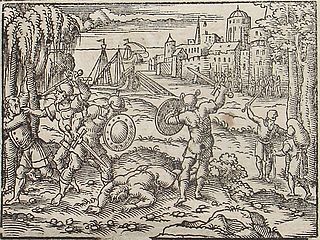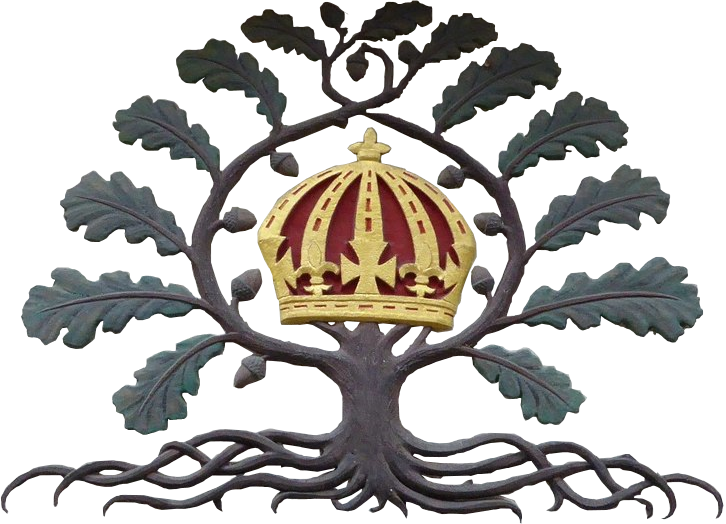Oligarchy is a form of power structure in which power rests with a small number of people. These people may or may not be distinguished by one or several characteristics, such as nobility, fame, wealth, education, or corporate, religious, political, or military control.

A polymath is an individual whose knowledge spans a substantial number of subjects, known to draw on complex bodies of knowledge to solve specific problems.

The Age of Enlightenment was an intellectual and philosophical movement that dominated Europe in the 17th and 18th centuries with global influences and effects. The Enlightenment included a range of ideas centered on the value of human happiness, the pursuit of knowledge obtained by means of reason and the evidence of the senses, and ideals such as liberty, progress, toleration, fraternity, constitutional government, and separation of church and state.

The bourgeoisie is a sociologically defined social class, equivalent to the middle or upper middle class. They are distinguished from, and traditionally contrasted with, the proletariat by their affluence, and their great cultural and financial capital. They are sometimes divided into a petty (petite), middle (moyenne), grand (grande), upper (haute), and ancient (ancienne) bourgeoisie.
Camp is an aesthetic style and sensibility that regards something as appealing because of its bad taste and ironic value. Camp aesthetics disrupt many of modernism's notions of what art is and what can be classified as high art by inverting aesthetic attributes such as beauty, value, and taste through an invitation of a different kind of apprehension and consumption.

An intellectual is a person who engages in critical thinking, research, and reflection about the reality of society, and who proposes solutions for the normative problems of society. Coming from the world of culture, either as a creator or as a mediator, the intellectual participates in politics, either to defend a concrete proposition or to denounce an injustice, usually by either rejecting or producing or extending an ideology, and by defending a system of values.
The intelligentsia is a status class composed of the university-educated people of a society who engage in the complex mental labours by which they critique, shape, and lead in the politics, policies, and culture of their society; as such, the intelligentsia comprises scholars, academics, teachers, journalists, and literary writers.

In Marxist philosophy, cultural hegemony is the dominance of a culturally diverse society by the ruling class who manipulate the culture of that society—the beliefs and explanations, perceptions, values, and mores—so that the worldview of the ruling class becomes the accepted cultural norm. As the universal dominant ideology, the ruling-class worldview misrepresents the social, political, and economic status quo as natural, inevitable, and perpetual social conditions that benefit every social class, rather than as artificial social constructs that benefit only the ruling class.

Charles Wright Mills was an American sociologist, and a professor of sociology at Columbia University from 1946 until his death in 1962. Mills was published widely in popular and intellectual journals. He is remembered for several books, such as The Power Elite, which introduced that term and describes the relationships and class alliances among the US political, military, and economic elites; White Collar: The American Middle Classes, on the American middle class; and The Sociological Imagination, which presents a model of analysis for the interdependence of subjective experiences within a person's biography, the general social structure, and historical development.

In Marxist philosophy, the term dominant ideology denotes the attitudes, beliefs, values, and morals shared by the majority of the people in a given society. As a mechanism of social control, the dominant ideology frames how the majority of the population thinks about the nature of society, their place in society, and their connection to a social class.

Cultural pessimism arises with the conviction that the culture of a nation, a civilization, or humanity itself is in a process of irreversible decline. It is a variety of pessimism formulated by a cultural critic.
Working-class culture is a range of cultures created by or popular among working-class people. The cultures can be contrasted with high culture and folk culture, and are often equated with popular culture and low culture. Working-class culture developed during the Industrial Revolution. Because most of the newly created working-class were former peasants, the cultures took on much of the localised folk culture. This was soon altered by the changed conditions of social relationships and the increased mobility of the workforce and later by the marketing of mass-produced cultural artefacts such as prints and ornaments and commercial entertainment such as music hall and cinema.

High culture encompasses the cultural objects of aesthetic value, which a society collectively esteem as exemplary art, and the intellectual works of philosophy, history, art, and literature that a society consider representative of their culture.

Used colloquially as a noun or adjective, "highbrow" is synonymous with intellectual; as an adjective, it also means elite, and generally carries a connotation of high culture. The word draws its metonymy from the pseudoscience of phrenology, and was originally simply a physical descriptor.
The Rambler was a periodical by Samuel Johnson.

Traditionalist conservatism, often known as classical conservatism, is a political and social philosophy that emphasizes the importance of transcendent moral principles manifested through certain natural laws to which society should adhere prudently. Traditionalist conservatism is based on Aristotle's and Edmund Burke's political views. Traditionalists value social ties and the preservation of ancestral institutions above what they see as excessive individualism.

The structure of social class in Cambodia has altered several times throughout its history. The traditional hereditary elites were marginalised in the 1970s, when military leaders gained prominence, before the Khmer Rouge attempted to dramatically eliminate existing class structures in the late 1970s. Since the emergence of peace in the early 1990s, social inequality has increased in Cambodia.

Edward Wadie Said was a professor of literature at Columbia University, a public intellectual, and a founder of the academic field of postcolonial studies. A Palestinian American born in Mandatory Palestine, he was a citizen of the United States by way of his father, a U.S. Army veteran.

Anti-intellectualism is hostility to and mistrust of intellect, intellectuals, and intellectualism, commonly expressed as deprecation of education and philosophy and the dismissal of art, literature, and science as impractical, politically motivated, and even contemptible human pursuits. Anti-intellectuals present themselves and are perceived as champions of common folk—populists against political and academic elitism—and tend to see educated people as a status class that dominates political discourse and higher education while being detached from the concerns of ordinary people.
Ancient Egyptian philosophy refers to the philosophical works and beliefs of Ancient Egypt. There is some debate regarding its true scope and nature.













